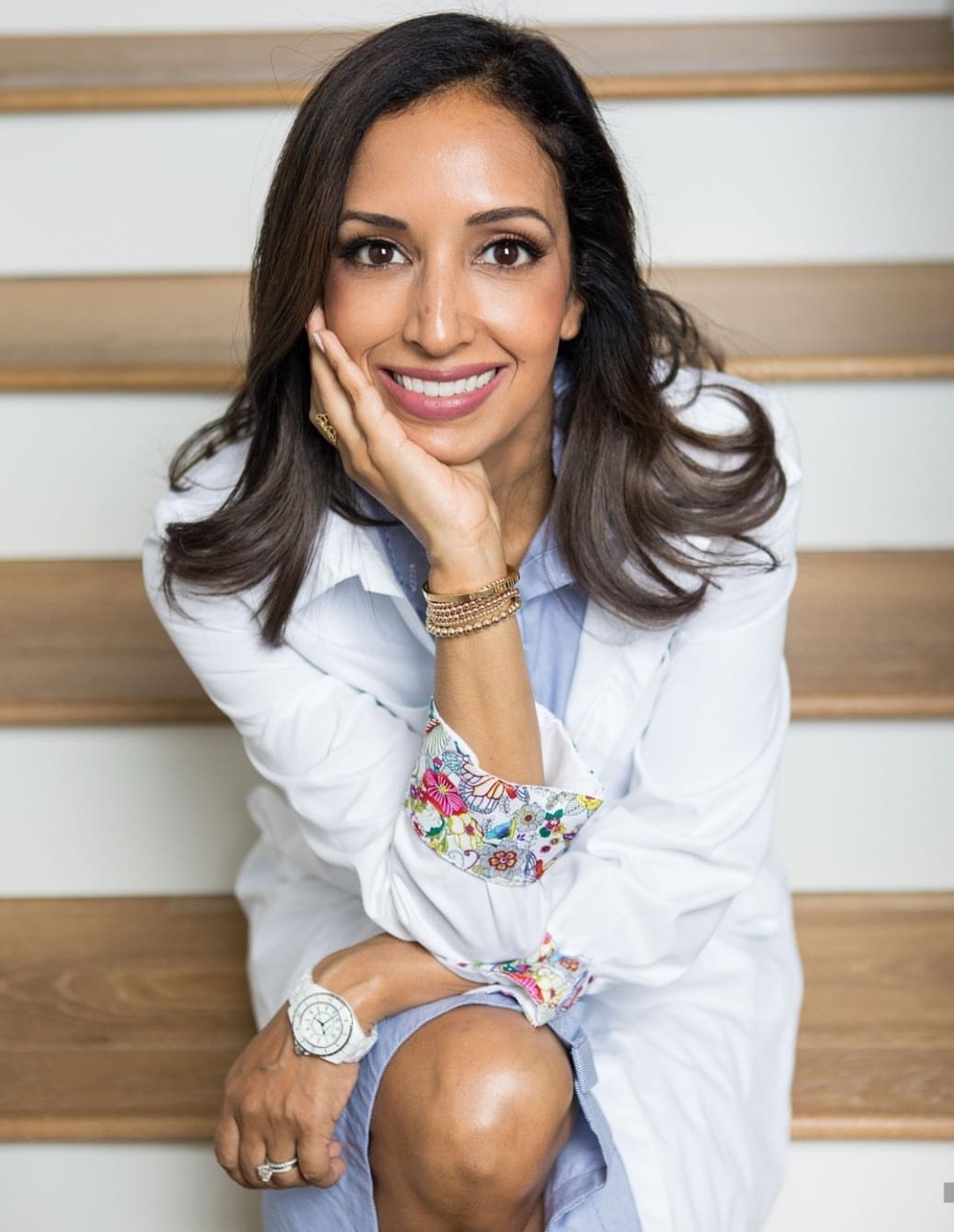THE 44TH INSTALMENT OF THE BELLEBOSS SERIES
P.S Don’t forget to click that subscribe button at the end of the page so you can keep up with all the latest Belleboss Interviews!

I hoped that with this series, I would find a way to appreciate the incredible South Asian women of our generation, who are breaking boundaries and paving new paths for themselves. Moreover, I would like you to take a little bit of time to realize how incredible the women around you are.
Especially if you are a woman! I know that at least one woman’s story in my #BelleBoss series will inspire you to follow your dreams, your vision and most importantly your heart. Even if that means breaking a few rules and many societal prejudices along the way.
Could you please give us an introduction to yourself?

My name is Rupa Wong. I’m an ophthalmologist, with specialty training in pediatric ophthalmology and adult strabismus. I was born in New Jersey and raised in North Carolina. My parents immigrated to this country in the early 1970’s. My father was an electrical engineer, born in Colombo, Sri Lanka, but met my mother in Madras when he was at IIT. My mother is also a physician and attended Jipmer Medical College in Pondicherry.I grew up in North Carolina, with one younger brother.
Could you explain how your interest in medicine grew and how you chose your speciality?
My mother is a physician, as were several aunts, uncles and cousins. I always had a natural affinity for medicine and pursued research internships during my summer months in high school. In the U.S, you attend 4 years of college, then apply to medical school, which is 4 years. During your final year of medical school, you choose a residency specialty. There are so many reasons that I chose ophtho:
- Clinic and surgery – In ophthalmology, you get to actually develop a relationship with patients, because unlike many other surgical subspecialties, you are in clinic a lot. I love surgery, but it’s the interactions with patients that drew me to medicine.
- Precise, bloodless surgery which restores sight! Honestly, can’t get better than that.
- Manifestation of systemic diseases in the eye – It is amazing to be the first one to diagnose a patient with diabetes or even a rare syndrome, like Marfan’s, based on their eye exam. I’ve done both!
I was hooked!

During my 4 year of medical school, I was lucky enough to receive a scholarship to do a rotation in Chennai, Indian in pediatric ophthalmology at Sankara Nethralaya Eye Hospital. I worked with an ophthalmologist who had actually done residency and fellowship in the U.S. and then had gone back to India to practice.
She was such a mentor to me and really helped solidify my goal of becoming a peds ophthalmologist.

I did 4 years of ophthalmology residency and then applied for fellowship positions in Pediatric Ophthalmology/Adult Strabismus. So, in addition to learning about pediatric eye conditions – congenital glaucoma, infantile cataracts, and blocked tear ducts, I also learned the latest techniques of adjustable suture strabismus surgery for adults. This allows me to help adults with thyroid eye disease, cranial nerve palsies or even just re-operations from strabismus when they were a child.

Some areas of ophthalmology are extremely specialized, I love Peds ophtho/strabismus, because it remains general, but just pertains to kids. I’m not only dealing with the retina or cornea or glaucoma – I do all of that. I perform laser retinal surgeries for retinopathy of prematurity, remove infantile cataracts and also do strabismus surgery on kids and adults.
I loved the precision of ophthalmology, that I could immediately fix a patient’s vision and enable the to see better, whether it was through glasses or surgery.
And, though I know now that ophthalmology is known as a field with a “better” lifestyle, that did not really enter my thought process when choosing it.

I think if you choose a speciality based on the hours or the pay, 10 years from now (which is where I am in my career now), you will feel burnt out and the money and easy hours won’t be worth it. You have to truly love what you do to to make it worth the sacrifice.

Could you tell us about the Attending Lounge, why you created it and why female mentorship is so important to you?
As my presence on Instagram grew, I started receiving so many questions from pre health students, filled with doubt, uncertainty regarding their career paths and the ability to maintain a work-life balance. I reached out to a few of my female surgeon friends initially because I wanted to show younger women that it is possible to be a woman, a surgeon, a wife, and a mother. Gradually, I broadened the scope of Attending Lounge to include all specialties.

I think there is a real need for female mentorship in medicine. There are so many questions that young women are not comfortable asking senior docs, but need to know.
Social media allows for them gain insight into what their lives might be like 15 or 20 years from now.
Could you please tell us how made the decision to move with your now husband to Hawaii and how you made the transition?
My husband was born and raised in Hawaii (5th generation). We met in New York during our residency and then moved to Boston together to complete our fellowship. I had a wonderful job at Boston Children’s Hospital, but my husband had a hard time with the weather. He yearned to be back near the ocean.
So, we took a huge leap of faith, moved halfway across the world and opened a practice together!
You talk about subtle racism you have experienced during your professional career. How has this impacted you and has this changed overtime?

To be honest, I have been quite lucky in medicine. Most of the racism I experienced was directly after 9/11, since I was a medical student in New York City at that time.
I remember patients peering at my badge, trying to determine if I was Muslim or not. However, Hawaii is the true definition of melting pot. Everyone is “hapa” or mixed. Even though there are not too many Indians here, it’s been a place where I truly feel accepted and no longer feel like I am the minority. I grew up in North Carolina where I encountered racism constantly growing up in an all white suburb. Since then, I’ve always chosen to live in larger metropolitan cities like New York or Boston and racism has not been as much of an issue.
Could you tell us a little about your three children and how you balanced being a mother and running your practice?
I have a 5 year old daughter, and my boys are 7 and 10 years old. In some ways, it’s easier now that the children are older, but in many ways it’s so much harder. There are endless extracurricular activities, birthday parties and homework to attend to with each child. In addition, working full time and having more than one child means that I really have set an intention to spend individual time with each child.
Running my practice has its busy season and sometimes it’s operating on autopilot! For about 8 years, I did most of the office management myself. For the past 2 years, I’ve slowly started delegating to my new office manager and that has taken a lot off my plate. Delegating is difficult, but is so necessary to be able to balance it all.
How do you hope to pass on both your cultures to your children / what values do you hope to pass on to your children ?
We live in Hawaii where we are surrounded by Chinese culture. It is harder for them to be exposed to Indian culture. There aren’t too many Indians on island, especially compared to where I grew up in Raleigh, NC. I simply want them to be good people. Doesn’t matter if they know the intricacies of a certain puja or what religion they choose, but most important is that they treat themselves and others with kindness.
The rest will fall into place!
What has been the most surprising thing about living in Hawaii apart from Saturday practice hours?
The people are so incredibly friendly and welcoming. I had only visited twice prior to moving out to Hawaii, so I never had a chance to truly get to know the community. But, it’s a community unlike any other I’ve experienced. I have lived in North Carolina, New York, and Boston, but Hawaii is home.
I also really enjoy living in a small town. So many people say “I can never live in Hawaii. It’s too small”. But, I truly enjoy feeling a part of the community – running into my patients at the local fair or the mall. That makes me love being a physician even more!
Could you tell us a bit about your involved with as Board of three non profits and why their work is important to you?
I’m actually on the Board of 3 non-profits. Project Vision Hawaii, Big Brothers Big Sisters Hawaii, and Association for Healthcare Social Media. My parents always instilled in my brother and I, this concept of seva, or service. We always volunteered the soup kitchens as a family growing up and I think it’s really important, giving back to your community. Each organization does something unique. Project Vision brings necessary eye and health care to disadvantaged and homeless individuals in the state. Big Brothers uses one to one mentoring to truly shape the lives of children. And AHSM is striving to create best practices for health care professionals on social media
Could you tell us why you started to make 10 year plans and why you think this is important.
This was an exercise a consultant I had hired about 5 years ago had recommended and I found it extremely helpful.
At the time, I couldn’t find a template for a 10 year plan, so I painstakingly constructed my own. I think it’s good to revisit the plan every year or two and make adjustments. You don’t realize how much changes!

When it was time to look at my plan again this year, I thought it might be helpful for others to have a template that they could complete like a workbook. I think it’s so essential to realize your core values and then use those to direct your goals.
Being extremely intentional about the path I want to take, helps reduce stress and my fear that I’m not doing something compatible with my values.
That is the end of this interview, and thank you to the lovely Rupa for taking the time to answer my questions. To visit her instagram, please follow the below link
and to her website





















